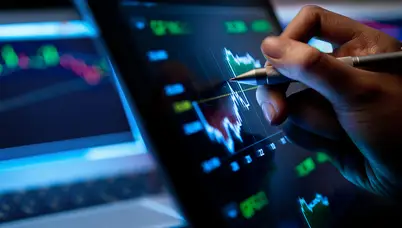Gold: Will it stay above Rs 16,000?
Posted On Sunday, Jan 01, 1950
Now that gold has crossed the psychologically important level of USD 1,000 - and stayed above that level for 4 trading days - the question in everyone's mind is: what next?
In Indian Rupee terms, the price of gold is at Rs 16,000 per ten grammes. This is still -0.74% below the peak of Rs 16,118 which was reached on February, 24, 2009.
From what we had heard then, many Indians were selling gold in the first few months of this year. The popular view at that time was that gold was unlikely to breach the Rs 16,000 level and could decline back to the Rs 14,000 levels. This selling resulted in India's imports of gold declining to record low levels (see Graph 1).
Graph 1: Import of gold into India collapsed earlier this year
 * 2009 data refers to H1 2009; Source: World Gold Council
* 2009 data refers to H1 2009; Source: World Gold Council
But that was then.
With gold prices now trading in the Rs 15,000 plus range for much of the past few weeks, Indian investors may be ready to change their views.
A quick conversation with a jeweller, visits to Tanishq shops, and a few phone calls seemed to suggest that Indians are now ready to jump back into gold.
While the traditional Diwali buying season is one reason, the refusal of gold to fall below the Rs 15,000 level maybe another.
"The price expectation is now Rs. 18,000", said a jeweller, "but I don't know whether it will get there. What do you think?"
Our view on gold has not changed - you should own it.
Well, before we move on to why we think what we think, let's see what others are thinking. And doing.
A global concern?
The Chinese are buying gold.
Newspaper reports suggest that the government is encouraging every Chinese to buy some gold.
This could suggest one of two things:
The government of China has reportedly bought a lot of gold in the past one year. The government may be keen to offload some of this gold onto their citizens and reduce the official government holding. Temporarily. Because, with the Chinese remnimbi that they get on the sale of gold to their citizens, the government can quickly go back and buy some more gold. In this way, the Chinese government is ensuring that many of their citizens have some private gold ownership - and that the reported holdings of gold with the Chinese government don't zoom. China as a country will have more gold - public plus private ownership. But the statistics will only report China's official government holdings - which will be steady. This will not cause a collpase in the US Dollar.
There is a possibility - though we don't believe it - that the Chinese government knows that gold is overvalued. So they are dumping the gold that they have bought as a government onto their people to take the loss. This is not an outrageous suggestion. Many overpriced IPOs in China's government owned companies were dumped onto Chinese investors many times in the past!
Whether to disguise their lack of faith in the US Dollar or to dump rubbish on their citizens - whatever the reason - the fact is that the Chinese are buying gold.
On September 18th, the IMF announced the sale of 403.3 tonnes of gold worth USD 13 billion "to be conducted under modalities that safeguard against disruption of the global market". This is not "news" as such but a follow-through of the decisions at the G-20 meeting in London in April 2009 where China, India, and Russia had agreed to buy gold.
But note: the buyers are all developing countries with a tradition of a belief in gold and other non-paper currencies.
And then we come to the individual retail investors, globally. Coins are still in short supply, though not as acute as in October 2008, just after the Lehman bankruptcy.
The ETFs have seen some decline in gold tonnage held by them these past few weeks. It is possible that some hedge funds may have sold their holdings.
Barrick, the largest gold mining company in the world has taken the unusual step of cancelling obligations that it had to sell approximately amounting to 304 tonnes (9.5 million ounces) of physical gold to the market at USD 410 per ounce. By cancelling these obligations, Barrick is incurring a loss of USD 590 (the current price of gold, USD 1,000 minus the price at which it agreed to sell, USD 410) per tonne. Multiply this by the 304 tonnes contract size and it is a loss of USD 5.6 billion that Barrick will show on its books.
Now why would Barrick wish to show a loss of USD 5.6 billion on its books?
Barrick is doing this because it probably believes that the price of gold is increasing.
A simple calculation suggests that if Barrick was willing to lose USD 590 per ounce of gold, then it should be hoping to make that up in the future - if not more.
Therefore, one can infer, that Barrick's estimation of gold's future selling price will be USD 1,000 (current price) + USD 590 = USD 1,590 per ounce, at the minimum.
This would translate to Rs 24,900 per 10 grammes if the fx rate of the Indian Rupee remained at USD 1 = INR 48.
Now we are not suggesting that Barrick is correct and that gold will reach the USD 1,590 per ounce price. Remember, the world's largets gold company got it "wrong" when it agreed to sell gold at USD 410 in the forward market. When Barrick made that contract, they obviously thought that gold would not be selling much above that price of USD 410.
Now our opinion...
Well, different people obviously have different opinions.
That is what makes a market, as they say.
Our opinion has not changed: you should have 10% to 15% of your money in gold. You don't need to trade it every month or year.
The way you would invest in the Quantum Long Term Equity Funds - for a 10 to
20 year investment time horizon.
And if you don't have any gold at all - don't panic and buy your entire 15% exposure immediately.
No, buy 1% every month for the next 15 months.
Read the Offer Document and Fact Sheet of Quantum Gold ETF and then call your broker and place the order; once a month; every month.
It will take you 30 seconds to make that phone call.
Or use your internet e-broking account.
Whether the price of gold is Rs. 16,000 per ten grammes; or Rs 12,000; or Rs 20,000.
If you have a 10 to 20 year time horizon, buying steadily over months will ensure that you averaged your buy-in price and then hold on to it for as long as the IMF has gold to sell.
And when the IMF runs out of gold and wishes to start buying some, you can sell your gold to them - and other central bankers - at some pretty good prices.
| Quantum Long Term Equity Fund | Quantum Gold Fund (NSE symbol: QGOLDHALF) | Quantum Liquid Fund | |
| Why you should own it: | An investment for the future and an opportunity to profit from the long term economic growth in India | A hedge against a global financial crisis and an "insurance" for your portfolioA hedge against a global financial crisis and an "insurance" for your portfolio | Cash in hand for any emergency uses but should get better returns than a savings account in a bank |
| Suggested allocation | 80 % | 20% | Keep aside money to meet your expenses for 6 months to 2 years |
Disclaimer : Past performance may or may not be sustained in the future. Mutual Fund investments are subject to market risks, fluctuation in NAV's and uncertainty of dividend distributions. Please read offer documents of the relevant schemes carefully before making any investments. Click here for the detailed risk factors and statutory information"
Ajit Dayal, the author is a Director in Quantum Information Services Private Limited and Quantum Asset Management Company Private Limited. Views expressed in this article are entirely those of the author and may not be regarded as views of the Quantum Mutual Fund or Quantum Asset Management Company Private Limited or Quantum Information Services Private Limited.
Mutual Fund Investments are subject to market risks. Please read the offer documents of the respective schemes before making any investments
Note: This article was first carried on www.equitymaster.com
Related Posts
-

Debt Monthly View for January 2025
Posted On Friday, Feb 07, 2025
Bond markets witnessed increased volatility during the last month with the 10-year Government
Read More -

Gold Monthly View for January 2025
Posted On Friday, Feb 07, 2025
In the calendar year 2024, gold demonstrated remarkable performance, yielding a return of ~ 27%.
Read More -

Equity Monthly View for February 2025
Posted On Thursday, Feb 06, 2025
Indian markets witnessed sharp sell-off in the month of January on the back of continued FII selling (USD -8.6Bn in January 25 vs USD -755Mn for CY2024).
Read More



